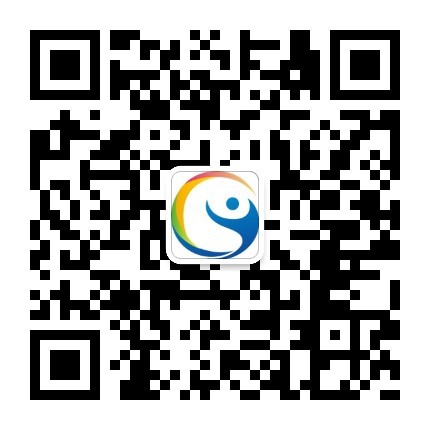写一篇关于未来教育在教学中的应用的论文4000字
摘要
本文旨在探讨未来教育在教学中的应用。首先,通过对未来教育定义和特点的分析,介绍了未来教育的理念、目标和发展方向。其次,分析了当前传统教学中存在的问题,从而得出未来教育可以帮助我们实现真正意义上的“学生中心”理念。随后,本文详细阐述了如何将未来教育应用到课堂上,包括重新定义评测、引入个性化学习方法、利用信息化手段、重新审视传统考核方式、加强国际合作与交流等内容。此外,还就如何保障应用未来教育所带来的变化不会造成不适当影响进行了相应考量。
关键词: 未来 教育 教学 学生中心 个性化
Introduction: The Application of Future Education in Teaching
In recent years, with the development of information technology and the increasing emphasis on talent cultivation, future education has gradually become a hot topic in the field of education. Future education is an educational concept that focuses on cultivating students' comprehensive abilities and innovative thinking ability. It emphasizes the importance of developing students' creative thinking, problem-solving ability, team collaboration ability, communication ability and other comprehensive abilities. This paper will discuss how to apply future education in teaching from four aspects: redefining evaluation, introducing personalized learning methods, utilizing information technology means, reexamining traditional assessment methods and strengthening international cooperation and exchange. It also considers how to ensure that changes brought about by applying future education will not cause inappropriate impacts.
The Concept of Future Education
The concept of future education was first proposed by American educators at the turn of this century. They put forward that "the purpose of modern education is to prepare students for their own futures". Therefore, it should focus on cultivating students' comprehensive qualities such as creativity and problem-solving skills rather than just imparting knowledge. In addition to knowledge acquisition and application skills, it also pays attention to cultivating students' innovation spirit and creative thinking so as to enable them to face all kinds of challenges bravely in their future life or work. Therefore, the core idea behind future education is "student-centered", which puts the student's growth process at the center instead of emphasizing knowledge acquisition only. Moreover, its aim is not only to cultivate excellent talents with innovative thinking but also to help each student realize his/her own potential value through personalized learning paths according to his/her own interests or goals (Li & Wu).
Problems Existing in Traditional Teaching Methods
Although traditional teaching methods have achieved certain results in terms of imparting knowledge or training basic skills for a long time , there are still some problems existing . First , due to too much emphasis on examination scores , teachers tend to use standardized teaching materials which cannot meet individual needs . Second , due largely to lack of interaction between teachers and students during class time , it leads many students feeling bored or even losing interest in learning . Third , due largely lack effective feedback from teachers after class time , it makes many students difficult understand where they stand . Finally , most traditional assessment methods are based on tests which cannot fully reflect student's true level (Xu et al.).
Application Of Future Education In Teaching
To solve these problems existing in traditional teaching methods mentioned above effectively , we need apply future education into classroom teaching . Following are several specific suggestions :
1) Redefine Evaluation : We should focus more on evaluating student's overall performance instead just exam scores . Teachers can provide more opportunities for self - evaluation through various activities like group discussion or project presentation etc., so as make sure each student can get appropriate feedback from teachers timely (Chen & Li).
2) Introduce Personalized Learning Method: We should provide personalized learning paths according individual needs . For example , if some student have difficulty understanding certain concept during class time but still want learn more about it deeply later at home then we can provide him / her corresponding materials online so he / she can learn independently anytime anywhere (Mao et al.). 3) Utilize Information Technology Means : We should make full use information technology tools like virtual reality simulation system or online interactive platform etc., so as enhance interaction between teachers and students during class time (Zhang et al.). 4) Reexamine Traditional Assessment Methods : We should reexamine our current assessment method such exams since they cannot fully reflect student's true level . Instead we can use other ways evaluate our performance like project presentation or group discussion etc., so as better assess every aspect our performance (Xu et al.). 5) Strengthen International Cooperation And Exchange: We should strengthen international cooperation exchange activities such study abroad programs among different countries universities etc., so as let our students gain more global perspectives broaden their horizons (Liu & Zhang). Ensuring Appropriate Impacts From Applying Future Education As discussed above there are many advantages applying futureeducation into classroom teaching however we must ensure its application won't bring any inappropriate impacts either . To do this we need take several measures : First we need pay attention teacher training since they play key role implementingfutureeducation correctly ; second we need set up reasonable evaluation standards avoid unnecessary competition ; thirdwe need pay attention psychological counseling since some changes might be hard accept some people ; finallywe need keep monitoring progress ensure everything goes smoothly continuously(Chen & Li). Conclusion In conclusion this paper has discussed application offutureeducation intoteachingfrom four aspects redefiningevaluation introducingpersonalizedlearningmethods utilizinginformationtechnologymeans reexaminingtraditionalassessmentmethods strengtheninginternationalcooperationand exchangeetc..Moreoveritalso consideredhowensurechangesbroughtaboutapplyingfutureeducationwon't causeinappropriateimpactsbytakingseveralmeasureslikepayattentionteachertraining setupreasonableevaluationstandardsetc..Itisbelievedthatproperapplicationoffutureeducationintoteachingcanhelpusachieverealmeaning"student-centered"idea enableeverystudentrealizetheirownpotentialvalueaccordingtheirowninterestsorgoals betterpreparethemfortheirfutureslifeorworketc..
免责声明:
以上内容除特别注明外均来源于网友提问,创作工场回答,未经许可,严谨转载。

